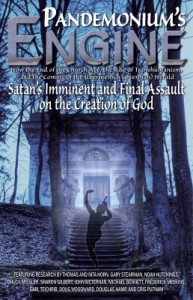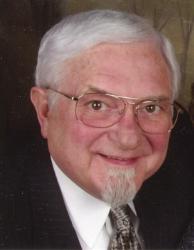The New Apostolic Reformation claims to be “the most radical change in the way of doing church since the Protestant Reformation.”[1] In fact, I think there is a remarkable truth to be found in that statement by C. Peter Wagner. I have been studying the Protestant Reformation and a remarkable event has come to my attention. This is in the context of the Lutheran reformation but finds an amazing correspondence to the New Apostolic Reformation’s seven mountains dominionism,
“Although Luther himself refused to extend the application of his teachings to the political realm in terms of revolution, there were others who disagreed with him on that point. Foremost among these was Thomas Müntzer, a native of Zwickau, whose early teachings were similar to those of the “prophets” from his village who created such a stir in Wittenberg. Müntzer claimed that what was most important was not the written word of Scripture, but the present revelation of the Spirit. In his case such spiritualist doctrine had political consequences, for he felt that those who had been born again by the Spirit should join in a theocratic community, to bring about the Kingdom of God. ” [2] (emphasis added)
Solomon was right nothing new under the sun because apparently the NAR is recycling Müntzer’s error. First, notice that Müntzer’s group also called themselves “prophets.” Corresponding to Wagner who argues:
Prophets are prominent in the Bible, both in the Old Testament and in the New Testament. As we just saw above, apostles are first and prophets are second. Every apostle needs alignment with prophets and every prophet needs apostolic alignment.One of the reasons why both should be active in our churches today is that the Bible says, “Surely God does nothing unless He reveals His secret to His servants the prophets” (Amos 3:7). And also: “Believe in the Lord your God and you shall be established; believe His prophets and you shall prosper” (2 Chronicles 20:20). I want to prosper and I want you to prosper.[3]
First, he uses the Old Testament as his rationale so he must conform to its standard for a prophet, 100% accuracy (Deu 18:22). Second, a big red flag goes up in that the term “apostle” properly means one who witnessed the resurrected Christ. Paul was the last apostle, there are no apostles today. This supported by a standard academic theological dictionary:
apostle. Derived from the Greek term apostolos, an apostle is basically a “sent one.” From his many followers Christ chose twelve whom he designated as “apostles” (Mt 10:2–4; Mk 3:14; Lk 6:14–16). These twelve, along with the apostle Paul as one “abnormally born” (1 Cor 15:8), became foundational in the establishment of the church and functioned as authority figures in the early church.[4]
Paul was “abnormally born” because Christ appeared to him on the Damascus road and commissioned him post ascension. Since Paul was the last apostle, the modern claims are necessarily false. As apostles and prophets, the NAR promote “Kingdom Now” or Dominion Theology just like Müntzer’s “theocratic community, to bring about the Kingdom of God.” The self-appointed apostle C. Peter Wagner has written,
“He [God] expects His kingdom-minded people to take whatever action is needed to push back the long-standing kingdom of Satan and bring the peace and prosperity of His kingdom here on earth.”[5]
“Whatever action is needed” sounds pretty scary. How does Wagner know this is from God? Well as a self-proclaimed modern day Apostle and Prophet, of course he gets it straight from God. This is remarkably similar to the discussion in my history text, “Müntzer claimed that what was most important was not the written word of Scripture, but the present revelation of the Spirit.” Wagner presents an argument for this sort of revelation as follows:
Extra-biblical revelation. Some object to the notion that God communicates directly with us, supposing that everything that God wanted to reveal He revealed in the Bible. This cannot be true, however, because there is nothing in the Bible that says it has 66 books. It actually took God a couple of hundred years to reveal to the church which writings should be included in the Bible and which should not. That is extra-biblical revelation. Even so, Catholics and Protestants still disagree on the number. Beyond that, I believe that prayer is two way, we speak to God and expect Him to speak with us. We can hear God’s voice. He also reveals new things to prophets as we have seen. The one major rule governing any new revelation from God is that it cannot contradict what has already been written in the Bible. It may supplement it, however.[6]
One marvels at this level of argumentation coming from a trained theologian. A number of points can be made here. First, while the canon is largely accepted, it was never a unanimous decision. He even acknowledges that this issue is still disputed today. Is God’s voice really that weak? Does he only whisper? No. What we see in the Bible is that when God really speaks to the prophets, it’s not vague. Next, cannon formation was organic and discovered rather than from the brute authority of magisterial councils. In Carson & Moo’s NT introduction a scholar named Barton is cited. Barton used data on the number of times the early church Fathers quoted the various books and there is a clear distinction in frequency of usage between the New Testament books and the non-Canonical works.[7] In other words, it was pretty self-evident which books were authoritative right from the beginning. So Wagner’s argument from the canon completely fails.
Is Wagner’s theology revealed directly to him by God?
NAR dominionism is based on a faulty post millennial eschatology. I have addressed it as an eschatological system here. But Wagner says it is revealed by God directly to him as an Apostle. Remember, he teaches that it is the church’s job to subdue the world by “whatever action is needed” to create the kingdom of God. In sharp contrast, the biblical teaching says things go from bad to worse. When Jesus was asked what it would be like before his return he said things like:
“Then they will deliver you up to tribulation and put you to death, and you will be hated by all nations for my name’s sake. And then many will fall away and betray one another and hate one another.”(Mt 24:9–10)
“Nevertheless, when the Son of Man comes, will he find faith on earth?”(Lk 18:8)
The true Apostle’s Peter and Paul taught a consistent doctrine:
“Let no one deceive you in any way. For that day will not come, unless the rebellion comes first, and the man of lawlessness is revealed, the son of destruction,(2 Th 2:3)
“For the time is coming when people will not endure sound teaching, but having itching ears they will accumulate for themselves teachers to suit their own passions,(2 Ti 4:3)
“knowing this first of all, that scoffers will come in the last days with scoffing, following their own sinful desires.(2 Pe 3:3)
“But understand this, that in the last days there will come times of difficulty. For people will be lovers of self, lovers of money, proud, arrogant, abusive, disobedient to their parents, ungrateful, unholy,(2 Ti 3:1–2)
In fact, dominionism has more in common with Rev 13:12ff than anything else in the Bible. Jesus defeats the evil world system, Jesus defeats the antichrist, Jesus defeats the devil. Dominion theology usurps Jesus’ job description.
He used the Old Testament as his justification for his prophet status but does he meet its standard (Deu 18:22)? Also recalling C Peter’s Wagner’s own statement, “The one major rule governing any new revelation from God is that it cannot contradict what has already been written in the Bible.” So we must ask, “does Kingdom Now contradict what has been written?” And the answer is clearly yes. Thus, we should not trust any of his claims. He is misguided at best and that is being charitable.
What got me started on all of this was the remarkable correspondence to Thomas Müntzer. Since past performance is a pretty good predictor of future events, it begs the question, “how did it work out for Müntzer?”
Later, when the rebellion was drowned in blood, he [Luther] urged the victorious princes to be merciful. But his words were not heeded, and it is said that more than 100,000 peasants were killed.[8]
The 16th century Kingdom Now prophet, Thomas Müntzer, was captured in the decisive Battle of Frankenhausen, tortured into recanting his heretical doctrines and beheaded. Indeed, the NAR really is “the most radical change in the way of doing church since the Protestant Reformation.” After all, Edmund Burke is famous for saying, “Those who don’t know history are destined to repeat it.”
 Get a signed copy of Pandemonium’s Engine here for $10.00
Get a signed copy of Pandemonium’s Engine here for $10.00
[2] Justo L. Gonzalez, The Story of Christianity: Volume Two – The Reformation to the Present Day (San Francisco: HarperOne, 1985), ebook location 111.9 / 943.
[4]Stanley Grenz, David Guretzki and Cherith Fee Nordling, Pocket Dictionary of Theological Terms (Downers Grove, Ill.: InterVarsity Press, 1999), 14.
[6] Ibid.
[7]D. A. Carson and Douglas J. Moo, An Introduction to the New Testament, Second Edition (Grand Rapids, MI: Zondervan, 2005), 733.
[8] Gonzalez, The Story of Christianity: ebook location 112.6 / 943.






